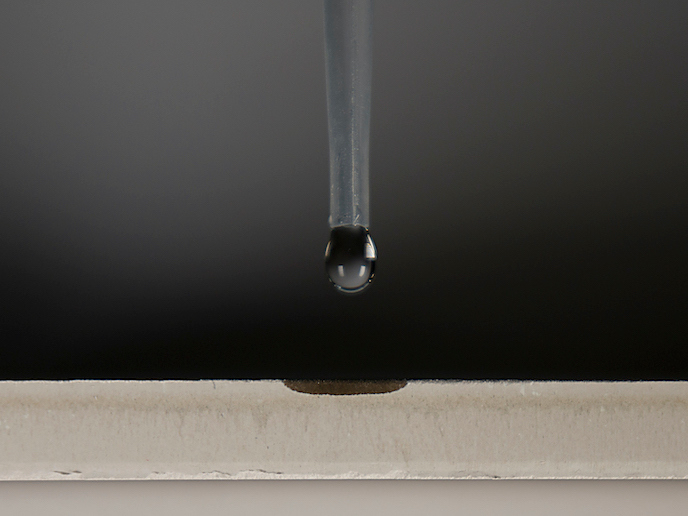An innovative, sustainable ink for printing digital porcelain
Even a field as old as ceramics isn’t immune from the digital revolution. Whereas in the past the ceramic tiles and decor used in building and construction projects got their colours and patterns through glazing, today this is being done digitally. Called digital or technical porcelain, these tiles are digitally printed using high-resolution patterns that mimic such textures as stone, wood and even fabric. Unfortunately, the standard ink used in the printing process has a rather substantial carbon footprint. This is where Metco comes in. With the support of the EU-funded ECO-INK project, the Italian stoneware and porcelain tiles decor company has developed a sustainable ink specifically for the digital porcelain tile market. “Our new water-based inks, which are dissolved in water, eliminate the use of organic solvents and, by doing so, reduce the ink’s carbon footprint and level of toxicity,” says Metco CEO and ECO-INK project manager Graziano Vignali.
A more sustainable ink
Traditionally, digital porcelain tiles are coloured using an ink based on micronised pigments suspended in an organic solvent. This ink is sprayed onto the tile surface using a process that is very similar to a deskjet printer. To ensure that the ink holds to the surface, a glass grid must be applied to the tile. ECO-INK, on the other hand, replaces this organic solvent with water, which is non-toxic. Furthermore, unlike organic-based inks, ECO-INK can penetrate the tile’s surface, eliminating the need for an additional layer of protection. The result is a more efficient – and sustainable – production process. “ECO-INK is a new colour formula that represents the most solid and resistant surface ever produced in the ceramic industry,” adds Vignali. Of course, getting to this point was anything but easy. For instance, one of the first challenges that Metco had to overcome was ensuring that the water-based ink was compatible with the various electronic components used in digital printing. Another challenge was finding the right chemical compositions needed to create the six standard colours used in printing. “We addressed each of these challenges, amongst others, by conducting hundreds of tests and trials in our firing kiln,” remarks Vignali. “As a result, our colour collection is almost final, and our initial prototypes have proved to be viable from both a technical and an aesthetic point of view.”
Ready to disrupt the ceramic market
Thanks to the support of the EU funding, ECO-INK is one step closer to hitting the international market. “We are very proud of the fact that, in just 3 years, we successfully developed something both new and revolutionary,” says Metco sales and marketing manager Claudio Casolari. “Now we’re ready to take it to market and disrupt the ceramic production sector.” Metco is currently conducting market tests with several early adopters before moving into the production phase. The company is also ramping up its marketing and promotional efforts. “With many people using the COVID-19 lockdowns as an opportunity to do home improvement projects, demand for quality, sustainable ceramics is on the rise,” concludes Casolari. “We are happy to report that ECO-INK is now well-positioned to meet this demand.”
Keywords
ECO-INK, sustainable, ink, digital porcelain, porcelain tile, ceramics, building, construction, technical porcelain, carbon footprint, digital printing



